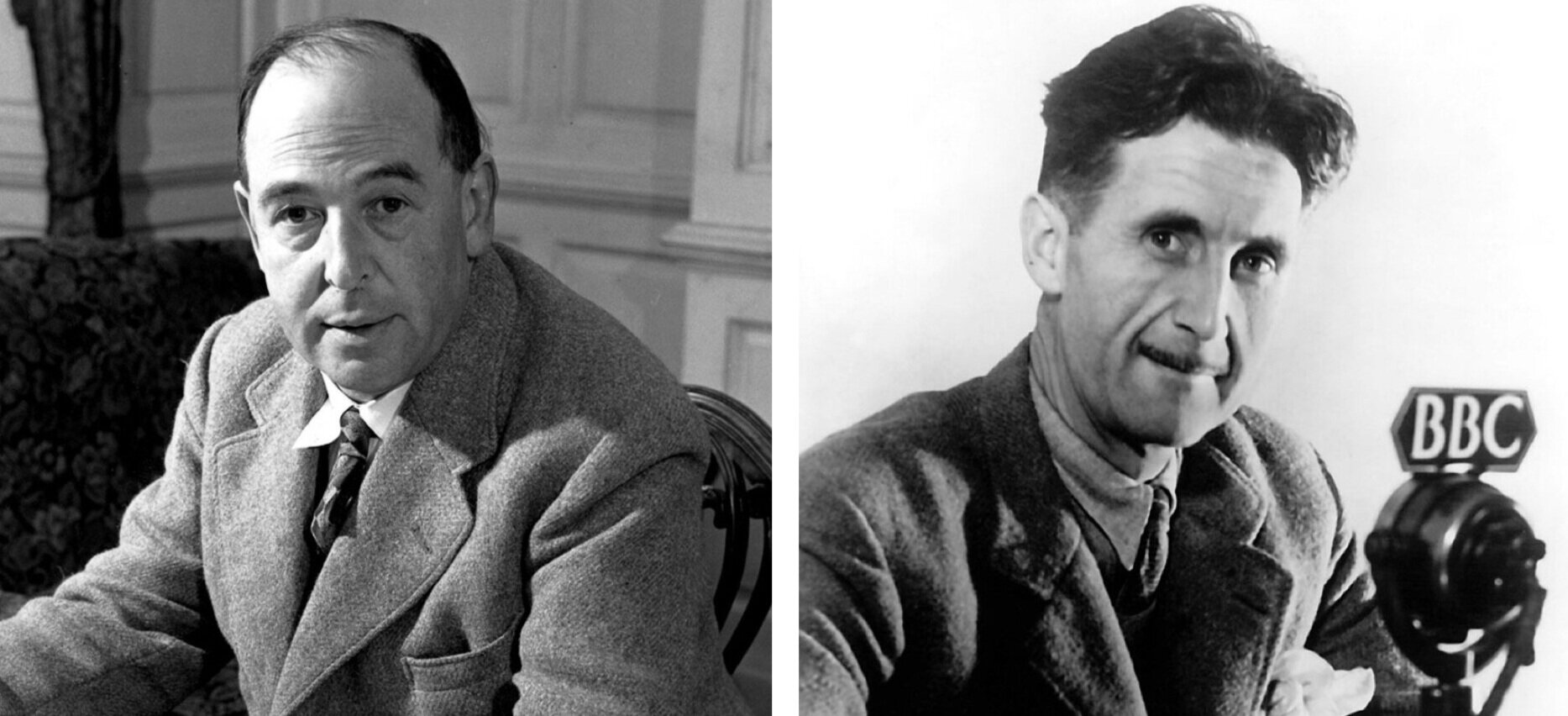There’s a well-known “Calvin & Hobbes” strip in which Calvin declaims on the joy of “verbing words.”
Calvin: I like to verb words
Hobbes: What?
Calvin: I take nouns and adjectives and use them as verbs. Remember when “access” was a thing? Now it’s something you do. It got verbed.
Calvin goes on to reflect that “verbing weirds language.”
But this is by no means original to Calvin; English words have been verbed from the beginning, and a post I wrote last week left me thinking in particular of the way the characteristic traits and foibles of animals have given us not just a zoo’s worth of adjectives (perhaps my favorite is mulish), but many verbs that are simply the names of the animals themselves.
Here are a few I thought of immediately, along with a grab bag of observations and reflections about the origins, use, and most especially the many fine shades of connotation and meaning of each.
cow
This is the one, which I used in my post last week about attempts to “cancel” specific lines of text in recent novels, that got me thinking about these words, and it’s probably the one I use most often.
Unlike some of these other verbs, the metaphor behind cow, the mental image I’m supposed to get from the word, isn’t particularly clear to me. Cowing someone suggests intimidation—a coercive, overbearing persuasion. Someone who has been cowed has fearfully, submissively given in. Beyond the fear that plays a role here, I’m not sure what this has to do with cows, which are generally unflappable unless spooked en masse. Where I grew up, when teenaged morons amused themselves by trying to frighten or chase cows, the animals usually just began a phlegmatic retreat that ended no farther away than it had to.
But in reading about this verb I learned that it’s possible cow, in this sense, came into English from the Old Norse kúga, a word meaning to force, tyrannize, or oppress. The Online Etymology Dictionary speculates that this word in turn developed from the standard Old Norse word for cow, kýr, the idea being that cows are “easily herded.” A tantalizing possibility, but I doubt we can know for sure. There’s clearly a lot of figurative work going on here.
Nevertheless, it’s interesting that this is yet another of the many English loanwords from Old Norse that—like knife, die, outlaw, ransack, berserk, and slaughter—has forceful and potentially violent implications.
badger
Badger as a verb is interesting because it vividly evokes a specific animal—an animal that doesn’t actually behave the way the verb would imply. This has to do with the idiom’s origin in early modern gambling and bloodsport. Badger-baiting, akin to cockfighting, bear-baiting, and dogfighting, involved putting a badger in a box or barrel and sending dogs in after it. Though “normally quite docile” and shy, badgers put up a ferocious defense when cornered, and apparently a single badger could last through multiple bouts with the dogs in a badger-baiting contest. These were timed events, with dogs going into the badger’s artificial den many times and the spectators wagering on the dogs’ speed and tenacity, and so badgering is actually what the dog does in this scenario—repeatedly attacking in an attempt to draw the prey out.
With the decline of badger-baiting as a sport this meaning apparently transferred to the badger itself, giving it an outsized reputation for ferocity. The word has also weakened in meaning, I think, as its normal use implies pestering, merely annoying harassment—but nothing lethal for either badger or dog.
ferret and squirrel
Both of these verbs usually take on a preposition (about which more below), often out or away, as in: The guard ferreted out the entrance to the tunnel or He squirreled away the snack for later. I pair these because while one implies searching and the other implies hoarding, both suggest a feverish, jittery quality. There’s a smallness to these images that suggests petty but hyper concern, the kind that can cause problems. Someone ferreting something out is searching too eagerly and minutely for anyone’s good; someone squirreling something away is fussy and anxious, or at least overcautious in preparing for the lean times.
Unlike the actual animal, ferret can take on sinister connotations. As the example I came up with above makes clear, I associate ferret very strongly with The Great Escape, in which the German guards at Stalag Luft III are called “ferrets” and do plenty of ferreting, with sometimes fatal results.
dog and hound
Dogs today are ersatz children and treated as such; there is no more repulsive set of slang terms to me than those built around dogs-as-kids: “fur babies,” “granddogs,” “dog mamas,” etc. These represent a nauseating and poisonous sentimentality.
Dog and hound as verbs, however—The bank is dogging him about his mortgage payment and My boss is hounding me about that expense report—are clearly hunting metaphors. Hound has been in use in this figurative sense for at least 400 years, and dog for at least 500. Both convey continuous, close, unwavering pursuit, with hound carrying a further connotation of nagging or harassment, possibly unjustified. There’s also a neat elaboration on these with the verb bird-dog, in which one pursues a target on behalf of someone else.
The closer we get to the world that first used these words in these senses the better.
wolf
Often with down, as in: He wolfed down his supper and fell asleep on the couch. Another canine metaphor, and I imagine a pretty ancient one, though the Online Etymology Dictionary only records its use in this sense from 1862. As sinister as wolves are in European tradition and folklore, it’s interesting to me that wolfing down one’s food suggests little more than a lack of manners rather than something potentially more wicked.
parrot and ape
Here’s a case study in subtle differences. Both of these are commonly used to mean “imitate” or “mimic,” but note the connotation of each. Parroting someone suggests a mindless, lockstep repetition, as in: He’s just parroting what everyone else is saying about the new Star Wars movie. But aping someone suggests clumsy or offputtingly crude imitation; it carries much more contempt than the other. (Compare monkey below.)
An effect of the uncanny valley, the creepiness of not-quite-human primates doing human things? Maybe, maybe not—but I think it’s an interesting subtlety.
monkey
If aping someone suggests a contemptible attempt at imitation, to monkey around or monkey with something suggests purely foolish, probably childish, and, in the worst case, aimless and destructive tinkering. What all three have in common is a deadly combination of ingenuity and lack of intelligence. Based on my handful of visits to the primate exhibits in zoos, this is apt.
rat
As the above entries make clear, I’m interested in the way some of these verbs take prepositions and others don’t. Rat can take a couple: you can rat on somebody, which is bad enough, but ratting them out is even worse—a total betrayal. Why rats, highly social animals that take good care of each other, should suggest this kind of disloyalty and dishonesty is unclear to me; I reckon it has more to do with rats’ ancient association with darkness, decay, and disease than anything about their behavior.
chicken out and pig out
If you’ve studied German at all you are familiar with the dreaded separable-prefix verb. This is a verb that has a base or root, which is always a recognizable verb, the meaning of which is changed by a preposition that is a prefix in the infinitive form but moves to the end of the sentence when used. These bedevil new students of the language not least because there’s not always a clear logic to which preposition results in which meaning. (Here’s a game effort at explaining some of them, though Mark Twain’s observations on the “rules” of German grammar should always be kept in mind.)
Something similar happens with certain idiomatic expressions in English, as the way we use the verbs chicken and pig shows. Why does one chicken out under pressure rather than chicken up or chicken around? My only guess is that it’s purely intuitive—it just feels right. And we’ve said it this way for so long that saying it any other way feels unnatural.
Regardless, with chicken out and pig out we have two barnyard animals acting on vices—cowardice and gluttony. And not just acting on them; these expressions hint at indulgence. One could be a chicken but still hang on when danger comes, thus proving oneself and building a little character, but to chicken out in the crisis is unforgivable. The sense of indulgence is especially clear with pig out, a verb no American who has ever been to Golden Corral needs to have explained.
hog
Unlike pig above, hog needs no preposition, just an object—one simply hogs something. This was a common complaint when and where I grew up, as in: Quit hogging the couch! or Clint is hogging the crayons! or Don’t hog all the pork rinds! Succinct and potentially vivid—especially if, like us, you accompanied your accusation with snorting—I think it’s been used so much it’s probably lost most of its original power.
buffalo
I began with the verbed animal that I most commonly invoke; here’s one I have less occasion for, but that always amuses me when I run across it. Journalist Kevin D Williamson is particularly fond of it, not only in writing, as here:
They’re hoping that conservatives can be buffaloed with a bit of cheap free-market rhetoric into not noticing that something is excruciatingly amiss here.
but in speech, as in various interviews and podcasts I’ve heard him on, as here:
[T]hey are fools and self-interested, and they know that people are easily scared and easily misled and easily buffaloed into doing whatever it is you want them to do, which is why they become politicians in the first place.
As it happens, these illustrate the two related but different things that may have happened to someone who has been buffaloed: either baffled, confused, or outright hoodwinked, or overawed and intimidated—a sense probably derived from the animal’s real-world effect. You’ll notice that there’s an overlap between these two senses both in definition and in the way they are used in the examples above.
But what I especially love about buffalo as a verb is the faint air of ridiculousness that hangs around it. To be buffaloed is not only unfortunate but preposterous, and I’m glad we have a word for precisely that occasion. We should get a lot of use out of it nowadays.
Conclusion
Merriam-Webster has a longer, more detailed “Words at Play” post on some of these here. I suspect there are plenty more—I can think of goose, beetle, bitch, fox and outfox, and horse (as in horsing around) offhand—especially in more recent or subcultural slang.
At any rate, English is fun, and I hope it stays that way. Try using one of these in writing or conversation this week—just don’t let all my grammatical mumbo jumbo cow you.















